Cyprian Is Nyakundi has exposed a confidential complaint filed with the Commission on Administrative Justice (CAJ) against Kenya Re Managing Director Hillary Wachinga.
The complaint accuses Wachinga of nepotism, procurement malpractice, and financial mismanagement. The report outlines allegations of unfair staffing decisions and governance failures within the government-backed Kenya Reinsurance Corporation (Kenya Re), adding to growing concerns over corruption in state institutions.
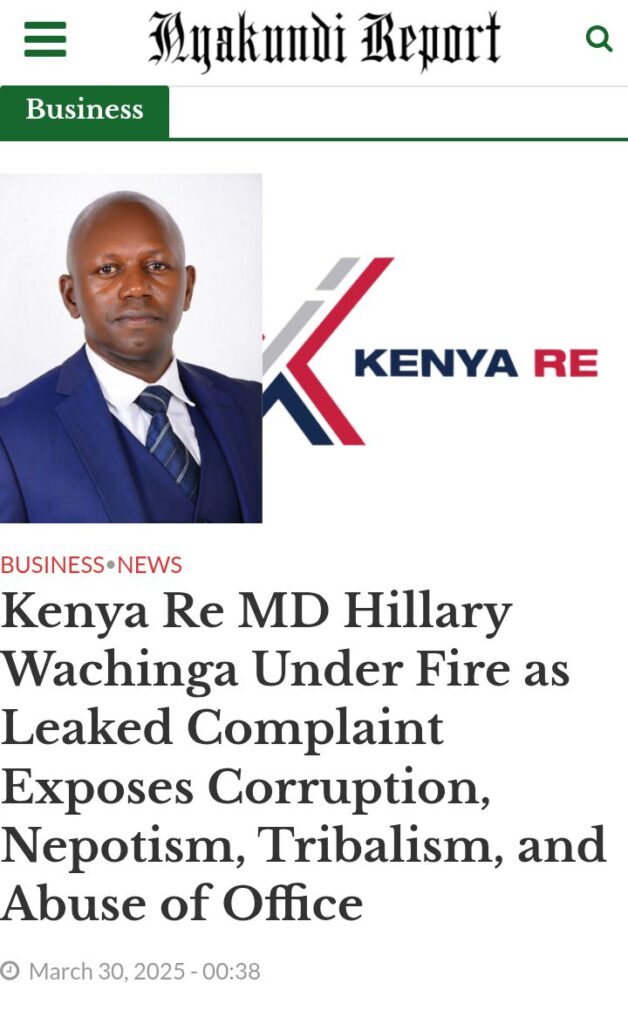
According to the leaked complaint, Wachinga has allegedly engaged in nepotism by favoring relatives and close associates for key positions within Kenya Re. This has resulted in qualified professionals being sidelined, affecting the efficiency and integrity of the corporation.
Sources claim that recruitment and promotions have been manipulated to benefit individuals connected to Wachinga, creating an environment where meritocracy is ignored in favor of personal loyalty.
Employees who have attempted to question these practices have reportedly faced intimidation and victimization.
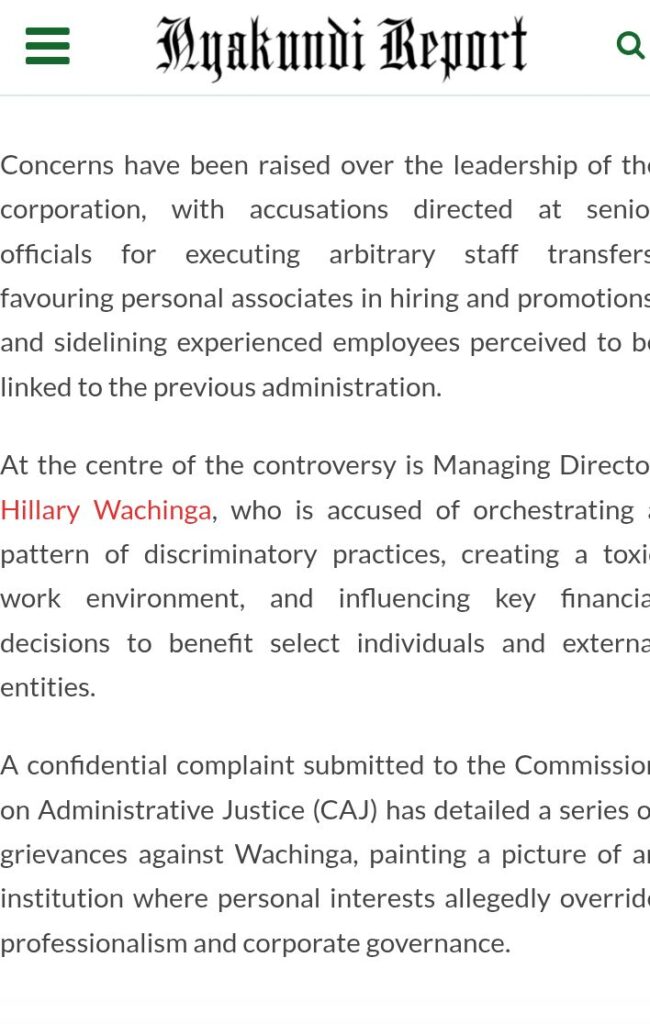
The complaint also highlights procurement irregularities, where lucrative contracts are allegedly awarded to companies linked to Wachinga and his associates. This raises serious questions about transparency and accountability in Kenya Re’s operations. Some sources suggest that inflated tenders have been issued, with payments made for substandard services or ghost projects.
These allegations, if proven, could indicate a deep-rooted culture of corruption within the corporation, which is mandated to provide reinsurance services for both public and private insurance companies in Kenya.
Financial mismanagement is another major issue raised in the complaint. Insiders claim that Kenya Re has been losing significant sums due to poor financial decisions and possible embezzlement of funds.
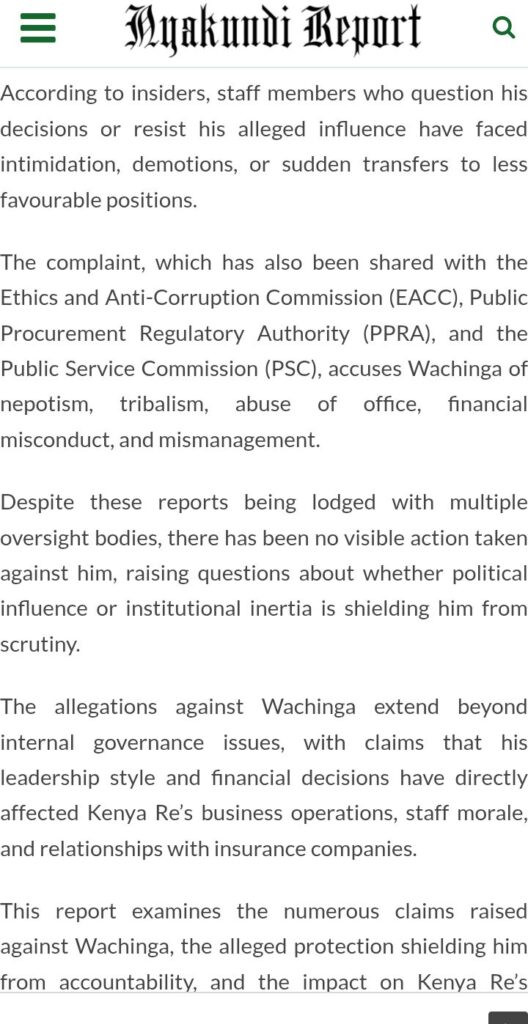
The corporation, which plays a crucial role in the insurance sector, is reportedly struggling with liquidity challenges despite being a key player in the market.
This raises concerns about whether policyholders and stakeholders are being shortchanged while a few individuals benefit from misappropriated resources.
These revelations come at a time when many state-owned enterprises are under scrutiny for corruption and inefficiency. Kenya Re, being a government-backed entity, is expected to operate with a high level of professionalism and accountability.
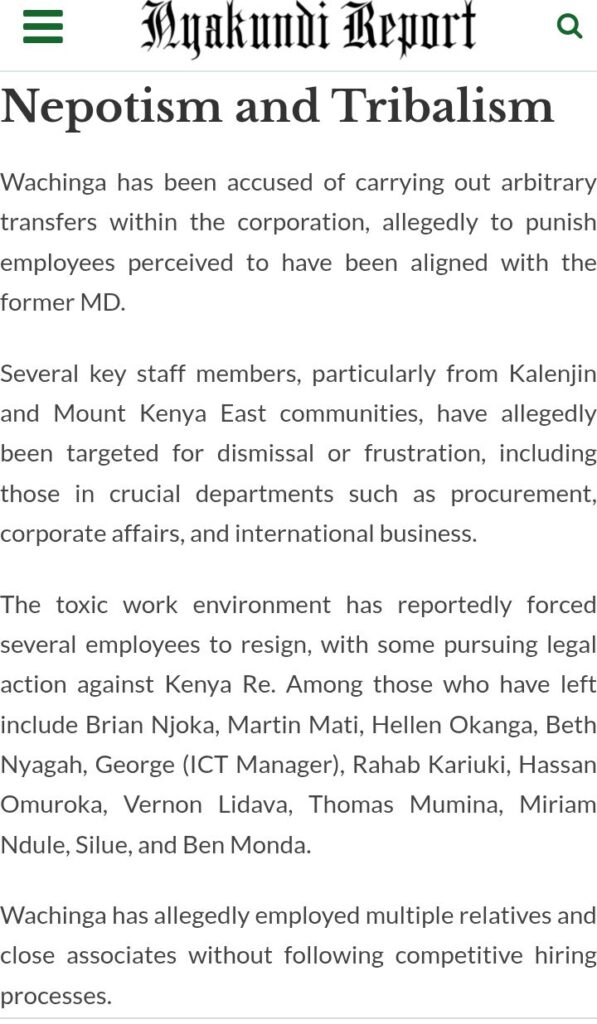
However, if the allegations against Wachinga are accurate, it indicates a broader problem of governance failures within public institutions. The involvement of the Commission on Administrative Justice suggests that the matter is being taken seriously, and an investigation could reveal further irregularities.
Kenya Re’s management is yet to respond to the allegations, but pressure is mounting for authorities to take decisive action. Calls for an independent audit and an overhaul of the corporation’s leadership are growing louder.
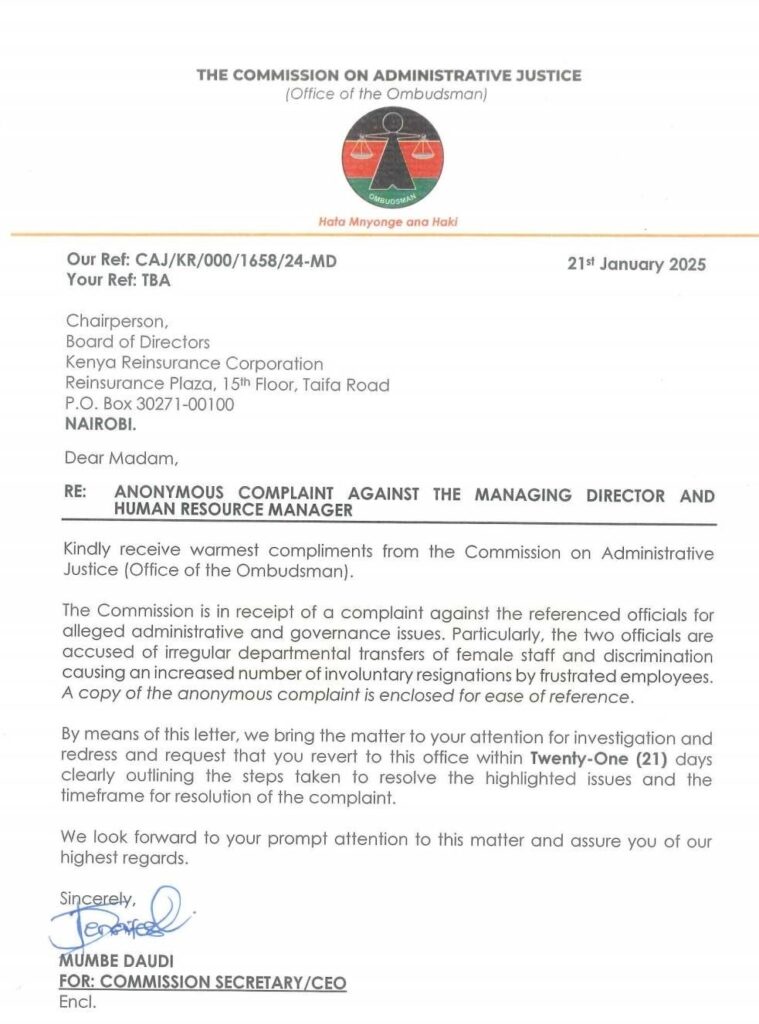
If left unchecked, the alleged corruption and mismanagement could have long-term consequences for the stability of the insurance sector and public trust in state institutions.
The case against Wachinga is likely to fuel debates on the need for stricter oversight and reforms to curb graft in government agencies.







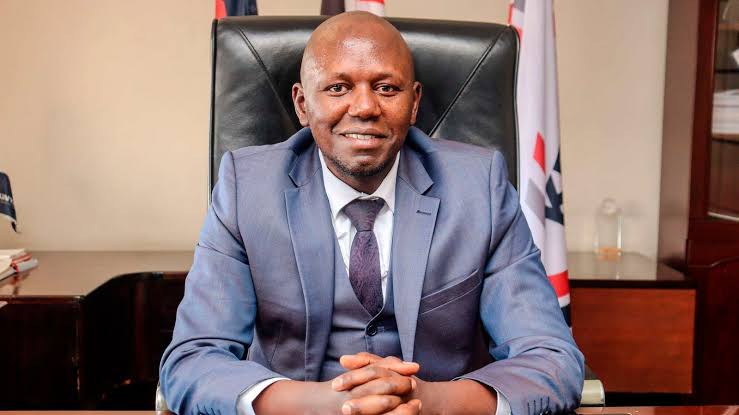













Add Comment